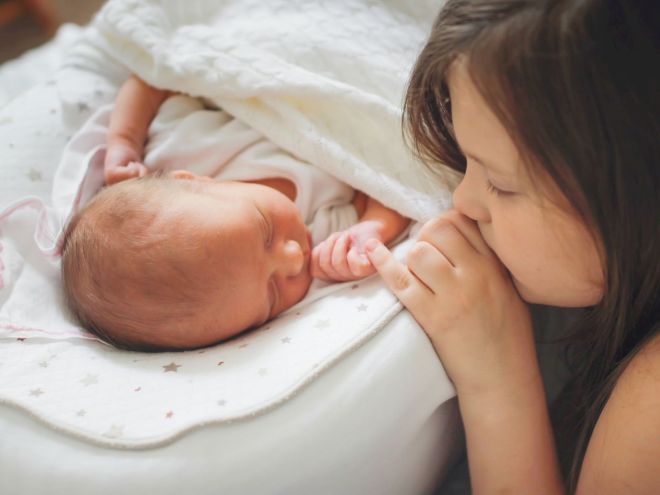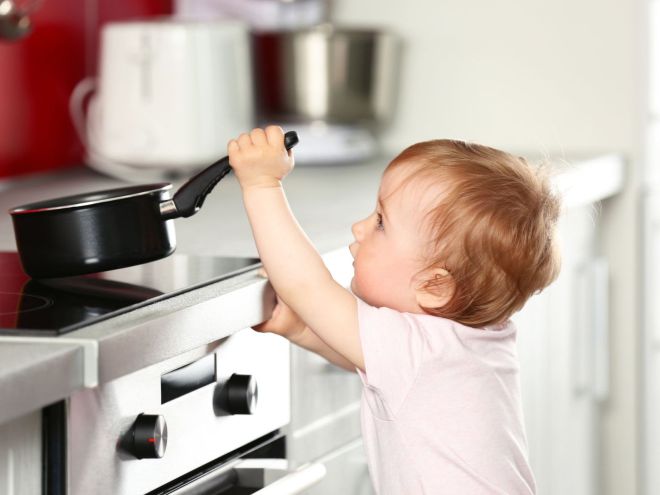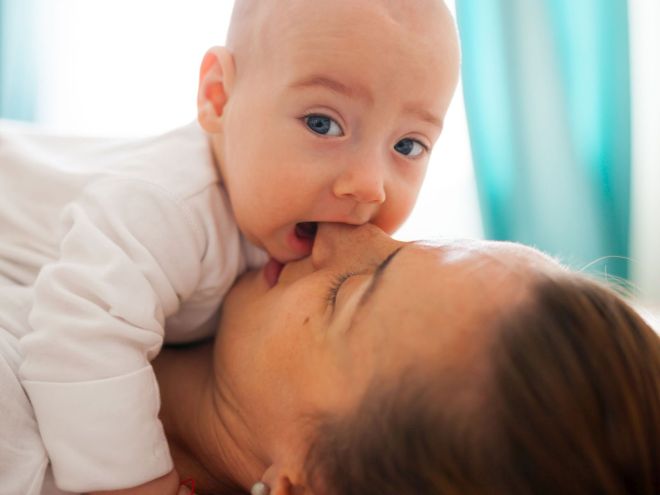The Terrible Twos: Are they here? My little one is kicking and screaming ten times a day!



Discover a new way of looking at this delightful but challenging age. It might bring your family some relief. One mom’s experience with a “defiant” 2-year-old.
“Babies, that’s nothing. Just wait until the Terrible Twos start. That’s the real challenge,” they told me. Everybody. So I kept my eyes open and waited for when it would hit.
My son turned 2 last month. This is what I’ve observed so far:
He’s the most passionate child I know. He feels everything with his entire body. When he has trouble doing something, he gets mad and you can see he’s likely to punch something. He wants to do everything himself, even to the point of absurdity – those 2-year-old hands are still pretty small for some things. And it drives him up the wall when I don’t understand him. I’m getting pretty good at figuring things out, but working out that “dror” means not a drawer but a girl? That took some detective work. Sometimes he’s okay with the fact that it takes a while before I understand what he wants, but when he’s tired or overstimulated, no way.
I’ve also realized a few things about myself since becoming a mother:
I’m probably the most passionate adult I know. I experience everything with this huge intensity. When I have trouble doing something, I feel like beating someone up. It’s almost absurd, all the things I feel like I have to do on my own, even though it would be more sensible to ask for help. And when someone has trouble understanding me, it drives me up the wall. How can they not get it when I’m saying it so clearly!! I’m short-tempered at the best of times, even more so now that I’m always sleep deprived.
I can’t help but think that if this is what the Terrible Twos look like for my little one, then I must be going through the same thing now at 30.
Some things have changed in the past year, that’s true …
It’s true that my son gets more frustrated now than he used to.
He can’t tie his shoes.
Another toddler grabs things out of his hands.
Painting an egg brown doesn’t turn it into real chocolate.
A year ago he wasn’t fussed about any of these things. He wanted to run around and put his fingers in your eyes. He wasn’t thinking about other babies or shoelaces at all. And he’d never tasted chocolate.
So is this the Terrible Twos or not?
I kept wondering.
I don’t want to make it into some philosophical “it all depends on your point of view,” but I will say that I’ve decided to opt out of the Terrible Twos mindset. I know myself. If I were waiting around for the Terrible Twos to start, I’d drive myself around the bend. Every time my son said “No!” I would think, “Aha! It’s here! And it’s just getting worse from here!”
If he refused to get dressed one morning and wanted to watch a show instead, I’d see flashing lights and a sign saying “TERRIBLE TWOS” and I’d try to do something about it.
And yet … what would I do exactly?
Just don’t give in or else I’ll spoil him! (says my mom). Or let him be and wait for it to pass? He’s still little, after all, and it’s the stage he’s at (says the voice in my head). Ignore it! Pay it no attention and he’ll stop when he sees there’s no audience (says my friend Anna, who has older children). But then Eva, a twin mom I met in the hospital, said: All kids go through a defiant stage and they just have to grow out of it.
Okay, I guess it’s nice that everybody has an opinion. I just have trouble believing that the instant a baby turns 2 they turn into an uncontrollable ball of defiance for the next three years (as the Terrible Twos turn into the Threenager, Ferocious Fours, and beyond).
When I watch my son’s behavior, I see that it’s often not really defiance at all. It’s just that he’s not a little potato who’s content to lie in my arms and chew on his fingers anymore. He has his own interests, favorite foods, friends, ideas about what he wants to do next, and shirts he hates wearing. (Just like me.) And at the moment, his vocabulary is too limited to express in words everything that he needs.
And so I wonder:
Could the “Terrible Twos” really just be the first intergenerational communication failure?
Could it be that children at this age simply want to do what they see us doing? So when my little guy sees me pushing the buttons on the dishwasher every day, he wants to try it too? And when I don’t appreciate his passion for button-pushing and pull him away with a “No, no, don’t touch!” then he gets mad? And he shows it. Seems logical.
And is it possible that as our little ones grow, they start having similar needs to us adults? They feel the need to express themselves and influence the world around them … but their parents aren’t ready for that and keep treating them like babies.
Could they be like us in some ways, just smaller? Only we don’t consider them full people yet, so they kick up a fuss.
This idea made a lot of sense to me.
Everything I read about this stage said that kids this age are not mature enough to navigate conflict or handle mental strain or tension (or something along those lines), and it kind of freaked me out. I get that it’s some developmental stage.
But if my toddler is losing his temper ten times a day, does that mean he’s in a tense situation ten times a day? Or under mental strain?
Whoa. I’m not questioning what the experts say about this developmental stage, but …
… but yeah, it kind of fits.
Maybe we should try not creating so much tension?
I gave it some thought. I observed my son. That was around the time I started learning about Unparenting. One of the Unparenting stories I read helped everything make more sense to me. It was this one:
My son is 16 months old. Any time things don’t go entirely his way, he starts fussing.
Today I was carrying him in my arms across the kitchen and into his room. As we passed by the microwave, he reached out to press the buttons. I felt a stab in my shoulder blade right then and even though I was wearing a neck brace, I could tell I wouldn’t be able to carry him anymore. I set him on the floor and said, “I know you wanted to look at the microwave, but I can’t hold you anymore.” He started jumping up and down and grabbing at me, then threw himself on the floor and banged his fists.
I held onto the counter for support and sat down beside him. I stayed quiet for a minute, then said that I knew he wanted to look at the microwave, but that I was injured and couldn’t hold him as long as Daddy could. I explained that my back really hurt right then and I didn’t mean to put him on the floor, but I had to. At that point, he stopped kicking and screaming.
He stood up, toddled over, and gave me a hug and kiss. I felt like I could read a message in his face and eyes: “Sorry, Mommy, I don’t want you to be hurt. I love you.” We sat there for another minute and then went to play in the other room.
Seeing all those emotions on his face was incredible.
My initial response was mild disbelief.
Are you saying all they need is to understand the situation and to give them a little time and it can end without an Oscar-worthy performance?
Sure, that’s simplified a bit, but still …
And then I had the same experience myself.
Drama at the tram stop: “It’s mine!”
My son and I were on our way somewhere and I was famished. I had a snack for him and a croissant for myself, which he had previously turned his nose up at and didn’t even want to taste. Now, though, he grabbed it out of my hand and started eating.
“I’m sorry, sweetie,” I told him, “I didn’t know you’d like a croissant too. I brought you your other snack instead. But I’m really hungry right now and I need to eat that croissant.”
He looked at me and his face scrunched up. “Nooooo! Miiiiiine!” he wailed. He cried for a minute, which felt like an eternity to me, and big tears dripped down his face. It was early in the morning and my brain wasn’t in full gear yet, so I didn’t say anything. I just kissed him on the head. I know what it feels like when I can’t have everything I see. It stinks.
We stood there for a minute, him crying, me watching. Then I said, “I know you want the croissant, but I can’t give it to you right now. I’ll give you your snack instead. Okay?” All of a sudden he stopped crying and thrust the croissant toward me so abruptly it bumped me in the nose.
“Here Mama!” he said. All the tenderness in the world was in his voice.
I couldn’t believe my eyes. All that emotion, all the anger and tears, and now this. It was so powerful to see all the emotions reflected in his eyes.
He wasn’t some greedy toddler who wanted everything for himself. He wasn’t an uncontrollable ball of anger who needed to be pacified as soon as possible. He needed time to work through his emotions. Maybe sadness that he couldn’t have it. Maybe disappointment. Maybe simple surprise. I don’t know. But I could sense it was important.
Then he fed me the whole croissant (minus one bite he took for himself to make things fair :)).
Thank you for the silence. It helped me to see.
If I hadn’t had a good night’s sleep, or if it had happened in the middle of the day when we were busy, it might have all gone differently. I might have responded with something like, “Hey, there, buddy, not everything is yours,” and killed the moment just like that.
That delicate moment in which I managed to keep quiet and observe. The moment that showed me how strongly my son felt when he wanted something and couldn’t have it. It made me see that his strong feelings are not aimed at me. And that if I don’t bring my own irritated “mom” comments into the mix, but just tell him honestly what the deal is, he’ll calm down.
Maybe not right away, but in general.
And honestly, could I do that? Get worked up about something and then calm down instantly? Not a chance.
He’s like me, my little one. Not in everything, of course! But maybe it would help if I started seeing him that way? And maybe, instead of heeding the advice to ignore his behavior, it might help to pay more attention?
I think so.
Pay attention to what’s really going on
Because in the end that’s a hundred times more useful than seeing defiance in every little thing and labeling any time the kid gets upset as part of a “phase.”
Because right now maybe he just needs to feel his feelings. He’s not throwing a tantrum. He’s experiencing strong emotions. He doesn’t need my clever commentary on top of that.
Maybe he just needs time?
Or he’s trying to tell me something? Not defying me, just trying to communicate. And I don’t understand what he’s trying to say.
This really turned my world upside down. Later I found out that Unparenting families take more or less the same approach. Here’s another story that got my attention (honestly it sort of grabbed me by the collar and warned me not to make things more complicated or tense than they have to be):
My 15-month-old son saw me peeling a cucumber and ran over, rummaged through a cabinet, pulled out bowls, and put them on the floor (we have dogs, so there’s always plenty of dog hair on the floor). I said, “Don’t put the bowls on the floor, please. Remember how we said it makes them dirty and then I have to wash and clean them up all the time.” He didn’t respond, just kept pulling things out of the cabinet, so I said, “I can’t allow you to do this,” then took everything away from him, put it back into the cabinet and carried him into the other room.
He burst out crying and wanted to go back to the cabinet, but I was upset so I pulled him away again and that just made things worse. He was crying so much … and I said to him, “I don’t understand you at all right now,” and put him on the floor.
He ran over to the cabinet and pulled out the bowl from the very back. The one I always put the peeled cucumber in. He handed it to me, and that was it. No raging, no crying. He wasn’t even trying to make a mess. Tears sprang to my eyes. And I have to wonder how I managed to misunderstand the situation so badly …
What the heck? I thought when I read that.
They want to be like us. To do what we do. This makes a lot more sense to me, and it helps me see my little one in a more positive light. I don’t have to see him as a defiant little toddler who might throw a wrench in my plans at any moment.
So I wonder if the dreaded Terrible Twos could instead be called …
The Together Twos?
One more story to close, okay? This one got my attention too. It’s about exactly what I was talking about:
Everybody talks about the Terrible Twos. They go from about 18 months to 3 years and during that time toddlers start using the personal pronoun “I.”
I’ve been tense all day. We’re going to a birthday party for my dad and the whole family is going to be there, and I’m scared. Will we manage it okay? Who’s going to criticize me this time, and what for? Will I get through it without snapping? So I’ve been grumbling, lashing out, and generally annoying even myself today.
I warned the boys as soon as we woke up this morning. I said I was sorry I might be snappy and explained why and how badly I felt about it. I said I wasn’t sure how to make myself feel okay again. They were so considerate, hugging me all morning. After one time I snapped, I went to lie down with the youngest. As we snuggled there in bed, he said, “I me. I Paul.”
He’s not some automatically defiant toddler. He’s not defying us for no good reason. He’s making space for that huge discovery. A young person of 2 years and 3 months and his amazing “I.” And I’m not some automatically annoying mom, some monster determined to make his life more difficult. Just a mom who’s trying her best and who gets scared sometimes.
I’m so glad I’ve got the opportunity to watch in real-time as this new “ME” wakes up. I’ll try not to stand in his way, but walk alongside him as he grows and discovers himself. :) Thank you for that!
Did you get to the end and feel like this mom’s perspective made a ton of sense to you? If so, we’ve got more parent stories that can help guide and inspire you through this “together” stage.
Because at Unparenting we also don’t buy into the idea that the instant a baby turns 2 they turn into an uncontrollable ball of defiance for the next three years (as the Terrible Twos turn into the Threenager, Ferocious Fours, and beyond). They are going through an important developmental stage, that is true. But in our experience, it doesn’t necessarily have to be accompanied by daily power struggles. Parents who have been through the Unparenting course share their stories here.


